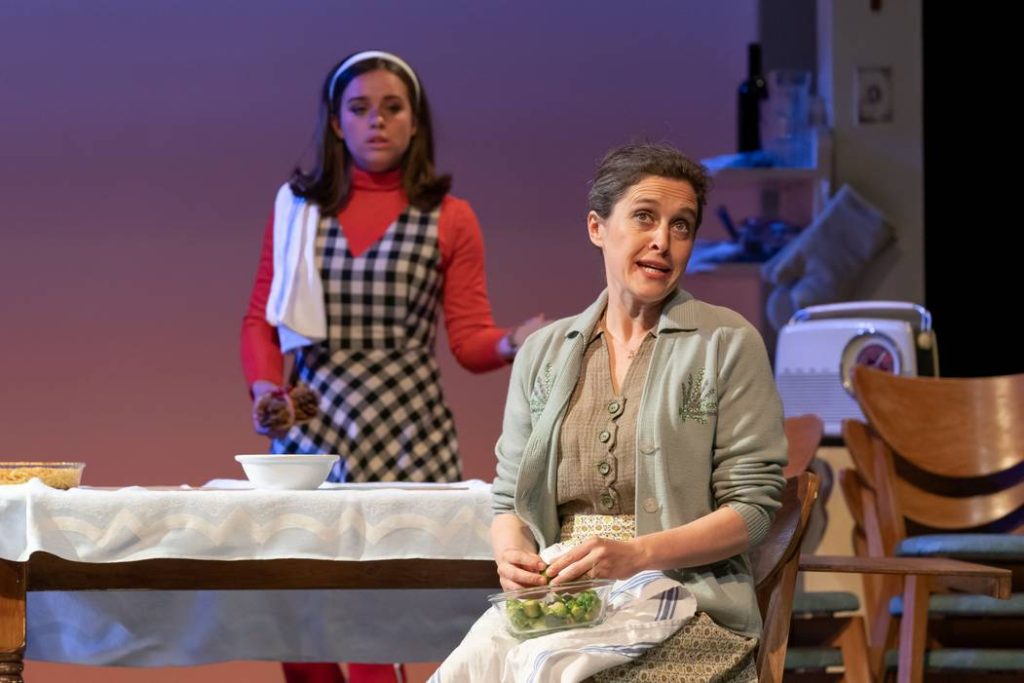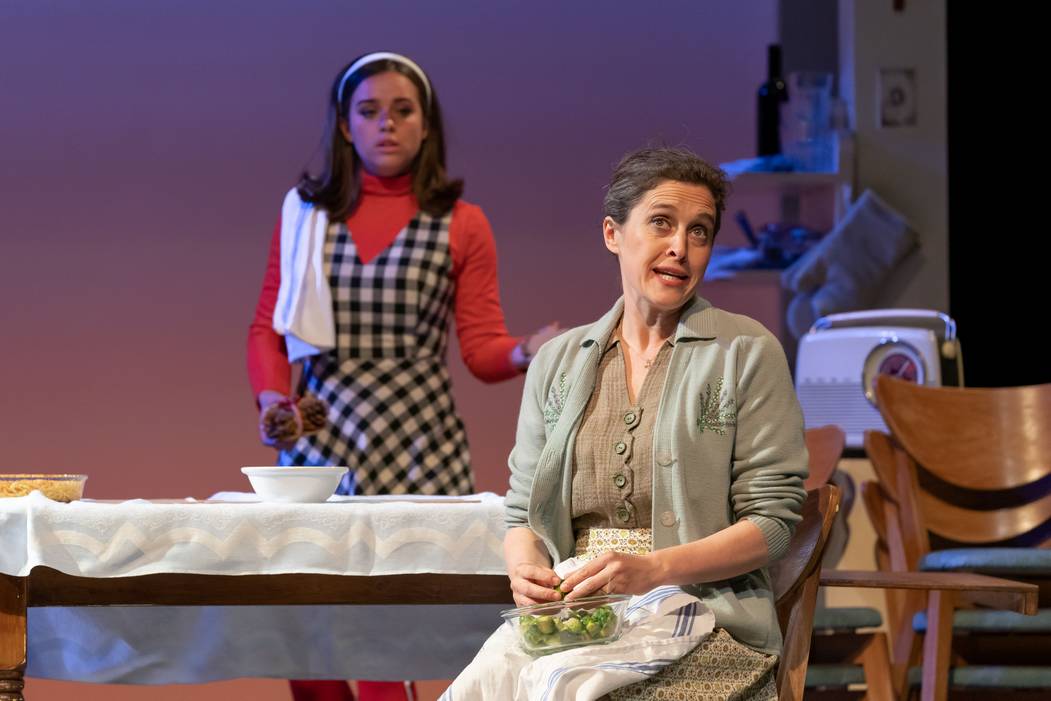
Napoli, Brooklyn tells a story of an Italian-American immigrant family living in Brooklyn in the 1960s. The mother, Luda, is trying to bring up three daughters – Francesca, Tina, and Vita – with love and massive amounts of food, while weathering a tempestuous relationship with her bullying husband, Nic. We quickly learn that Nic’s violent temper has led to Vita being sent to a convent, and that her absence is affecting the whole family deeply.
Francesca’s story underpins the play. She is the person struggling most with her sister’s absence. She feels guilty for Vita’s fight with their father, and is wrestling with her sexuality. She wants to find a place where she and her beloved Connie can be together and be happy, and is convinced that this can only happen if they run away to France. Hannah Bristow as Francesca is excellent – her strength and rebellious spirit, her love, her joys and sorrows, all play out with classic teenage melodrama, and yet she never tips the balance into over-acting, and the audience really cares for her character throughout.
The action hinges upon a moment in which two planes crash in mid-air over New York, with one plane landing in their neighbourhood, with fatal consequences. We watch characters’ lives change in the aftermath of this disaster, and of course, this event (which actually happened in 1960s Brooklyn and Staten Island) resonates with a post-9/11 audience.
While I liked the play, there is a sense that some of the themes are somewhat under-developed, perhaps by trying to deal with too many ideas at once. Tina befriends a black colleague, Celia, from the factory, and their relationship is interesting, but we don’t get a very rounded portrait of race relations, class, or education – all of which are touched on, but not developed. We watch Vita not really fit into life at the convent, but the play only deals with faith in a minor way, although it’s clear that it’s something very important to the family and community. While Nic is generally portrayed as a blustering bully, we also see a fascinating interaction between him and Luda which hints at a more complicated picture of familial abuse, but doesn’t really allow us to explore it more deeply.
This is an enjoyable piece of theatre, and I would recommend checking it out in the Oxford Playhouse this week. However, I think it’s ultimately a short story when you’re really hoping for a novel. ★★★☆☆ @BookingAround 5th June 2019


